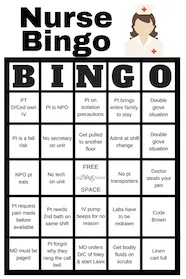In the field of nursing, Compassion is a critical part of patient care. Nurses must be compassionate to provide quality care for their patients. They are not allowed to take a detached approach and focus solely on tasks and procedures because this can lead to errors that could compromise the patient’s health. But the question is, Why Is Compassion Important in Nursing? Why not for doctors?. Because nurses deal with people on the most vulnerable days of their lives.
Nursing is a profession where compassion and empathy are essential qualities. They are often in the room when someone takes their last breath, and it takes a genuinely compassionate person to handle this type of emotional weight.
However, not all nurses have the same level of empathy or show compassion for their patients as much as they should – which can cause problems down the line. Providing emotional support can be difficult to do.
The holistic approach to nursing being present, doing for patients, and forming a connection embodies the caring profession. New research shows that emphasizing the art of nursing and compassionate care during orientation can improve outcomes, including boosting patient satisfaction and reducing the incidence of falls and pressure ulcers.
This is the reason why Compassion is important for nurses, but it’s not enough. We will discuss why Compassion is essential for nursing professionals, what causes a lack of empathy among some nurses, and how that lack could lead to disaster at work.
What is Compassion?
According to systematic literature, Compassion is the result of empathizing with others in suffering. It leads to a desire to help; Compassion is the emotion associated with these reactions.
To better understand what we mean by “compassion,” let’s look at some definitions:
The word “com-” comes from Latin meaning together or with; so, “with” feeling for one another – feeling sorry for someone else when they’re sad or hurting.
Compa- means very much; so, very much pity – having great sympathy or sorrow for someone who has been hurt.
So, it’s feeling sorry for someone else when they’re sad or hurting (being sympathetic) and wanting to help them out.
Compassion is what nurses do every day: They provide care to understand our patient’s needs; they know how much pain the patient might be in, but still give hugs anyway because nurses want to show love and support through difficult times.
Every major religion has something about Compassion at its center. Because as a human it is in our nature that we can’t see anyone in pain. Compassion has been defined as “a deep awareness of someone else’s suffering coupled with a strong wish to alleviate it” (Batson et al. 1997). At its best, it motivates us to take care of other people who need our support and share their burdens.
Why Is Compassion Important in Nursing?
It’s significant for nurses because they provide care to patients and their families and offer emotional support. And the success of patient outcomes depends on how compassionate a nurse is with them and the rest of their staff members.
So being compassionate helps nurses do what they need to do for it to be effective.
And just as important as having Compassion towards your patients, you should have Compassion for yourself too because if you’re not caring or feeling sorry for yourself, then you won’t have enough energy left over to take care of someone else’s needs which means that there will be consequences like burnout over time from working without breaks, lack of sleep, etc. so self-compassion is significant.
How to Be Compassionate with Patients
Being compassionate for nurses can be difficult, but it is essential. Nurses are often faced with many challenges in the workplace, and they must do their best to maintain a compassionate attitude. Compassion can make all the difference for patients as well as nurses themselves.
To improve Compassion at work:
- Maintain an open communication line between staff and management; this will help foster trust and reduce misunderstandings that can lead to conflict.
- Encourage empathy from one another by building relationships over time
- Focus on the strengths of other team members when conflicts arise or mistakes happen, so people feel valued.
To turn Compassion into care:
Take ownership of your role in care delivery; strive always to provide quality patient care no matter what situation you’re in. You have to take care of your patients and yourself.
Respect and support are essential to promote wellness in the workplace; this will help staff provide better care to patients and themselves.
Why Do We Need Compassion in Nursing?
The ultimate goal of Compassion within nursing, or any field, should be quality patient care that benefits both nurses and their patients.
According to the research of the U.S. National Institutes of Health’s National Library, “Compassionate care is vital to patient satisfaction, which in turn helps the patient improve their perception of care and quality of life and mitigates patient complaints and malpractice suits.”
Compassionate nurses listen to and understand the needs of their patients. They have empathy for others, which is a key component in providing care that’s personalized.
When you’re able to see this side of life and how difficult your job can become at times, Compassion comes naturally.
A nurse’s goal should be to provide excellent patient care and strengthen the rapport between caregiver and patient through understanding each other on an emotional level.
The importance of Compassion in nursing is something that has been studied for decades, and the benefits are wide-ranging. It can help nurses feel more satisfied, less stressed, and better equipped to care for their patients.
Conclusion:
We hope this post was helpful. If you’re interested in learning more about how empathy plays a role in healthcare or want some tips on being more compassionate with your loved ones at home, please read our other blog posts. If you have any questions or comments about this article, we would love to hear from you. Thanks again for reading, and remember – it’s not always easy, but it is always worth it.
More Resources:
- Why Empahty is Important in Nursing
- Why Caring Is Important in Nursing
- Why Patient Education is Important
Download Nurse Bingo Today!

Liven up any shift with a fun game of bingo. See who can fill a row first!
Fill a whole card and lose grip with reality.
Your privacy is protected. We will never spam you.




